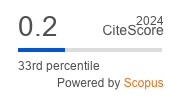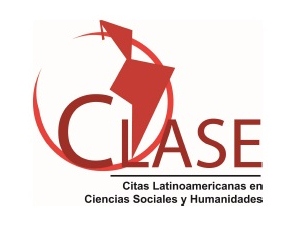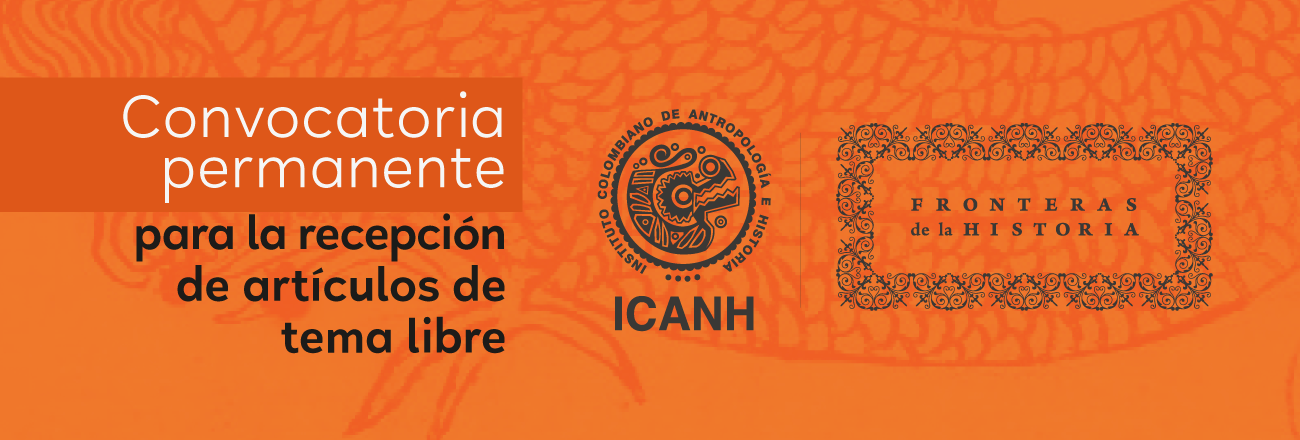Las perspectivas transnacionales para el análisis de la protección social en contextos migratorios
Resumen
Vivimos en una época marcada por un profundo desencaje entre una vida social que es cada vez más transnacional, y unos recursos de acceso a la protección social que siguen, en gran medida, vinculados al estado nacional moderno. En respuesta a eso, las familias transnacionales usan la movilidad internacional como medio para ampliar sus posibilidades de acceso a recursos de protección social prestados por los estados de bienestar o generados a través de la circulación de cuidado y el envío de remesas. En este artículo se presenta la agenda de investigación propuesta por la Protección Social Transnacional, enfatizando su vínculo con las investigaciones sobre el cuidado y la familia transnacional, así como el diálogo con los estudios de los regímenes de bienestar, desarrollo y políticas sociales globales.
Descargas
Citas
Alcid, M. L. L. (2003): “Overseas Filipino workers: sacrificial lambs at the altar of deregulation”, en E. Østergaard-Nielsen, ed., International migration and sending countries: Perceptions, policies and transnational relations, Basingstoke, Palgrave Macmillan, pp. 99 – 120.
Arriagada, I. (2010): “La crisis de cuidado en Chile”, Revista de Ciencias Sociales, 27, pp. 58-67.
Avato, J., J. Koettl, y R. Sabates-Wheeler (2010): “Social security regimes, global estimates, and good practices: The status of social protection for international migrants”, World Development, 38, pp. 455–466.
Baldassar, L. y L. Merla, eds. (2014): “Families, Migration and the Circulation of Care: Understanding Mobility and Absence in Family Life”, Nueva York y Abingdon, Routledge.
Baldassar, L., C. Baldock, y R. Wilding (2007): “Family Caring Across Borders. Migration, Ageing and Transnacional Caregiving”, London, Palgrave McMillan.
Basch, L. G., N. Glick Schiller, C. Szanton-Blanc. (1994): “Nations Unbound: Transnational Projects, Post-Colonial Predicaments, and Deterritorialized Nation-States”, Langhorne, Gordon and Breach.
Bauböck, R. (1994): “Transnational Citizenship: Membership and Rights in International Migration”, Aldershot, Edward Elgar.
Bauböck, R., y P. Scholten (2016): “Introduction to the special issue: «Solidarity in diverse societies: beyond neoliberal multiculturalism and welfare chauvinism»”, Comparative Migration Studies, 4(1).
Bilecen, B., y K. Barglowski (2015): “On the assemblages of informal and formal transnational social protection”, Population, Space and Place, 3(21), pp. 203-214.
Bilecen, B., G. Catir, y A. Orhon (2015): “Turkish–German transnational social space: stitching across borders”, Population, Space and Place, 3(21), pp. 244-256.
Boccagni, P. (2011): “Migrants’ social protection as a transnational process: Public policies and emigrant initiative in the case of Ecuador”, International Journal of Social Welfare, 20, pp. 318–325
Boccagni, P. (2016): “Addressing transnational needs through migration? An inquiry into the reach and consequences of migrants’ social protection across borders”, Global Social Policy.
Bommes, M., y A. Geddes (2000): “Immigration and the welfare state”, en Bommes, M. y A. Geddes, eds., Immigration and welfare: challenging the borders of the welfare state, London, Routledge, pp. 1-12.
Bonizzoni, P. (2015): “Here or There? Shifting Meanings and Practices in Mother–Child Relationships across Time and Space”, International Migration, 53(6), pp. 166-182.
Bryceson, D. F., U. Vuorela (2002): “The Transnational Family: New European Frontiers and Global Networks”, Oxford y New York, Berg.
Courtis, C. et al. (2010): “Migración y salud en zonas fronterizas: el Estado Plurinacional de Bolivia y la Argentina”, Santiago de Chile, CEPAL.
Daly, M. y J. Lewis (2000): “The concept of social care and the analysis of contemporary welfare states”, The British Journal of Sociology, 51, pp.281–298.
De Guchteneire, P. y A. Pécoud (2009): “The UN convention on migrant workers’ rights’”, en P. De Gucheteniere, A. Pécoud y R. Cholewinski, eds., Migration and Human Rights. Cambridge: Cambridge University Press y UNESCO, pp. 1–44.
Deacon, B., M. Hulse y P. Stubbs (1997): Global Social Policy: International Organisations and the Future of Welfare”. London, Sage.
Deacon, B. y P. Stubbs (2013): Global social policy studies: Conceptual and analytical reflections”, Global Social Policy, 13(1), pp. 5-23.
Dobbs, E., y P. Levitt (2017): “The missing link? The role of sub-national governance in transnational social protections”, Oxford Development Studies, 818 (January), 1–17.
Esping-Andersen, G. (1990): “The Three Worlds of Welfare Capitalism”, Cambridge, Polity Press.
Faist, T. (2000): “The Volume and Dynamics of International Migration and Transnational Social Spaces”, Oxford, Oxford University Press.
Faist, T. (2001): “Social Citizenship in the European Union: Nested Membership”, Journal of Common Market Studies, 39(1), pp. 39-60.
Faist, T. (2009): “The Transnational Social Question. Social Rights and Citizenship in a Global Context”, International Sociology, 24(1), pp. 7-35.
Faist, T. (2013): “Transnational Social Protection: An Emerging Field of Study”, Bielefeld, COMCAD Working Paper Series No. 113, Center on Migration, Citizenship and Development.
Faist, T. (2014): “On the transnational social question: how social inequalities are reproduced in Europe”, Journal of European Social Policy, 24(3), pp. 207–222
Faist, T. (2015): “Migración y teorías de la ciudadanía”, en P. Mateos, ed., Ciudadanía múltiple y migración: perspectivas latinoamericanas, México D.F., Centro de Investigación y Docencia Económicas, Centro de Investigaciones y Estudios Superiores en Antropología Social, pp. 25-56.
Faist, T. y J. Gerdes (2008): “Dual citizenship in an age of mobility”, en Bertelsmann Stiftung & Migration Policy Institute, Delivering Citizenship, Gütersloh, Bertelsmann Stiftung.
Fraser, N. (2009): “Scales of Justice: Reimagining Political Space in a Globalizing World”, Nueva York, Columbia University Press.
Fuentes Gutiérrez, V. y B. Agrela Romero (2015): “Violencia institucional hacia las migrantes bolivianas. Marianismo y restricción a la movilidad”, Athenea Digital, 15(4), pp. 81-104.
Gasca Zamora, J. (2002): “Espacios trasnacionales. Interacción, integración y fragmentación en la frontera México–Estados Unidos”, México D.F., Instituto de Investigaciones Económicas, Universidad Nacional Autónoma de México.
Gil Araújo, S. (2010): “Políticas migratorias, género y vida familiar. Un estudio exploratorio del caso español”, en Grupo Interdisciplinario de Investigador@s Migrantes, coord., Familias, niños, niñas y jóvenes migrantes. Rompiendo estereotipos, Madrid, IEPALA editorial, pp. 81-92.
Gil Araujo, S. y C. Pedone (2014): “Introducción. Familias migrantes y Estados: vínculos entre Europa y América Latina”, Papeles del CEIC, 2014/2.
Glick Schiller, N., (2010): “A Global Perspective on Migration and Development Nina Glick Schiller”, en Glick Schiller, N. y T. Faist, ed., Migration, Development, and Transnationalization: A Critical Stance, Nueva York, Berghahn Books, pp. 22-62.
Gonzálvez, H. (2016): “Los cuidados en la migración internacional”, Sur, Revista Internacional de Derechos Humanos, 13(24), pp. 43-52.
Gregorio Gil, C. (1998): “Migración femenina. Su impacto en las relaciones de género”, Madrid, Narcea.
Guaygua, G., ed., (2010): “La familia transnacional. Cambios en las relaciones sociales y familiares de migrantes de El Alto y La Paz a España”, La Paz, Defensor del Pueblo-PMH-PIEB.
Hammar, T. (1990): “Democracy and the Nation-State: Aliens, Denizens, and Citizens in a World of International Migration”, Aldershot, Gower.
Held, D. (1995): “Democracy and the Global Order: From the Modern State to Cosmopolitan Governance”, Cambridge, Polity Press.
Hernández, I. y N. Baca (2016): “El trabajo de cuidado como elemento constitutivo de las comunidades transnacionales en la migración México-EU”, Si Somos Americanos, Revista de Estudios Transfronterizos, 16(2), pp. 101-126.
Herrera, G. (2004): “Elementos para una comprensión de las familias transnacionales desde la experiencia migratoria del Sur del Ecuador”, en F. Hidalgo, ed., Migraciones. Un juego con cartas marcadas, Quito, ILDIS-Abya Yala, pp.215-232.
Herrera, G. (2011): “Cuidados globalizados y desigualdad social”, Nueva Sociedad, 233, pp. 87-97.
Herrera, G. (2012): “Repensar el cuidado a través de la migración internacional: mercado laboral, Estado y familias transnacionales en Ecuador”, Cuadernos de Relaciones Laborales, 30(1), pp. 139-159.
Herrera, V. R., y D. P. Grijalva (2017): “Políticas públicas para la población ecuatoriana migrante: ¿Hacia una protección social transnacional?”, GIGAPP Estudios Working Papers, 66-71, pp. 255-272.
Hochschild, A. R. (2000): “Las cadenas mundiales de afecto y asistencia y la plusvalía emocional”, en H. Hutton y A. Giddens, eds., En el límite. La Vida en el Capitalismo Global, Barcelona, Tusquets Editores, pp. 187-208.
Hochschild, A.R. (2005): “Love and Gold”, en Ricciutelli, L., A. Miles y M. H. McFadden, (eds.). Feminist Politics, Activism and Vision: Local and Global Challenges, Toronto, Zed/Innana Books, pp. 34-46.
Hondagneu-Sotelo, P. (1994): “Gendered transitions: Mexican experiences of immigration”, Berkeley y Londres, University of California Press.
Hondagneu-Sotelo, P. (1999): “Introduction. Gender and contemporary U.S Immigration”, American Behavioral Scientist, 42, pp. 565-576.
Isotalo, R. (2009): “Politicizing the Transnational: On Implications for Migrants, Refugees, and Scholarship”, Social Analysis, 53(3), pp.60–84.
Jones, R. C. (2014): “Migration and Family Happiness in Bolivia: Does Social Disintegration Negate Economic Well-being?”, International Migration, 52, pp. 177–193.
Kilkey, M., y L. Merla (2014): “Situating transnational families’ care-giving arrangements: The role of institutional contexts”, Global Networks, 14(2), pp. 210-229.
Kofman, E. (2004) “Family-Related Migration: A Critical Review of European Studies”. Journal of Ethnic and Migration Studies, 30(2), pp. 243–262.
Kymlicka, W. (1995): “Multicultural Citizenship”, Nueva York, Oxford University Press.
Lafleur, J. M. y O. Lizin (2015): “Transnational health insurance schemes: A new avenue for Congolese immigrants in Belgium to care for their realtives’ health from abroad?”, Transnational Studies Initiative Working Papers, Weatherhead Center for International Affairs Seminar at Harvard University. Disponible en web: http://orbi.ulg.ac.be/bitstream/2268/172046/1/Lafleur2015_tsiworkingpaper.pdf
Lagomarsino, F. y S. Castellani (2016): “The unseen protagonists. Ecuadorians’ daughter between Ecuador and Southern Europe”, Social Identities, 22(3), pp. 291-306.
Lamba-Nieves, D. (2013): “Hometown associations”, en Ness, I., ed., Encyclopedia of global human migration, Nueva York, Wiley.
Landolt, P. (2006): “Modernidad tardía y migración transnacional: reflexiones conceptuales desde el caso de El Salvador”, en Ardila, G., ed., Colombia: Migraciones, transnacionalismo y desplazamiento, Bogotá, Universidad Nacional de Colombia.
Lazaridis, G., ed., (2016): Security, Insecurity and Migration in Europe, Londres, Routledge.
Levitt, P. (1998): “Social remittances: migration driven local-level forms of cultural diffusion”, International Migration Review, 32(4), pp. 926–48.
Levitt, P. (2001): “The transnational Villagers”, Berkeley y Los Ángeles, University of California Press.
Levitt, P., y R. De La Dehesa (2003): “Transnational migration and the redefinition of the state: Variations and explanations”, Ethnic and Racial Studies, 26(4), pp. 587–611.
Levitt, P. y N. Glick Schiller (2004): “Conceptualizing simultaneity: A transnational social field perspective on society”, International Migration Review, 38(3), pp. 1002-1039.
Levitt, P., y N. Rajaram (2013): “Moving toward reform? Mobility, health, and development in the context of neoliberalism”, Migration Studies, 1(3), pp. 338–362.
Levitt, P., J. Viterna, A. Mueller y C. Lloyd (2016a): “Transnational social protection: setting the agenda”, Oxford Development Studies, 45, pp. 2–19.
Levitt, P., E. Dobbs, S. Parella, A. Petroff y A. Viladrich (2016b): “The Role of Sub-National Governance in Global Social Protection: A Comparative Case Study of Spain and USA in Health Care”. Comunicación presentada en la sesión "Global Social Protection and Migration: Reproduction of Inequalities or Safety Net?", Viena, III ISA Fórum de Sociología, Julio 2016.
Levitt, P., y R. de la Dehesa (2017): “Rethinking “transnational migration and the re-definition of the state” or what to do about (semi-) permanent impermanence”, Ethnic and Racial Studies, 40(9), pp. 1520–1526.
Merla, L. (2014): “La circulación de cuidados en las familias transnacional”, Revista CIDOB d’Afers Internacionals, 106-107, pp. 85-104.
Merla, L., y L. Baldassar (2016): “Response: Special Review Symposium, Transnational Families, Migration and the Circulation of Care”, Papers: Revista de Sociologia, 101(2), pp. 275-284.
Molanio, A. et al. (2012): “Cadenas globales de cuidados: síntesis de resultados de nueve estudios en América Latina y España”, Santo Domingo, ONU Mujeres.
OECD. Organization for Economic Co-operation and Development (2007): “The social expenditure database: An interpretive guide”, SOCX 1980–2003
Ong, A. (1999): “Flexible Citizenship: The Cultural Logic of Transnationality”, Durham, Duke University Press
Oso, L. (1998): “La migración hacia España de mujeres jefas de hogar”, Madrid, Instituto de la Mujer, Ministerio de Trabajo y Asuntos Sociales, Serie Estudios nº 52.
Oso, L., S. Parella, eds., (2012): “Inmigración, género y mercado de trabajo”, Monografía de la Revista Cuadernos de Relaciones Laborales, Madrid, Universidad Complutense, Escuela de Relaciones Laborales, 30(1).
Parella S. y L. Cavalcanti (2008): “Aplicación de los Campos Sociales Transnacionales en los Estudios Sobre Migraciones”, en Solé, C., S. Parella y L. Cavalcanti, orgs., Nuevos Retos Del Transnacionalismo en el Estudio de las Migraciones, Madrid, Ministerio de Trabajo e Inmigración de España, Observatorio Permanente De La Inmigración.
Parella, S. (2012): “Familia transnacional y redefinición de los roles de género. El caso de la migración boliviana en España”, Papers, 97(3), pp. 661–684.
Parella, S. (2016): “Introduction: The portability of care in an increasingly mobile world: Chains, drains and circulation”. Papers: Revista de Sociologia, 101(2), 253-257.
Parreñas, R. (2005): “Long distance intimacy: Gender and intergenerational relations in transnational famílies”, Global Networks, Vol. 5(4), pp. 317–336.
Paul, R. (2017): “Welfare without borders: unpacking the bases of transnational social protection for international migrants social protection for international migrants”, Oxford Development Studies, 818, pp. 1–14.
Pedone, C. (2003): “Las relaciones de género en los grupos domésticos ecuatorianos dentro del contexto migratorio internacional hacia España”, Treballs de la Societat Catalana de Geografía, 56, pp. 79-106.
Pedone, C. (2008): “’Varones aventureros’ vs. ‘Madres que abandonan’, reconstrucción de las relaciones familiares a partir de las migraciones ecuatorianas”, REMHU. Revista Interdisciplinar da Movilidades Humano, 30, pp. 45-64.
Pedone, C. y S. Gil Araujo (2008): “Maternidades transnacionales entre América Latina y el Estado español. El impacto de las políticas migratorias en las estrategias de reagrupación familiar”, en Solé, C., S. Parella y L. Cavalcanti, orgs., Nuevos retos de transnacionalismo en el estudio de las migraciones, Madrid, Ministerio de Trabajo e Inmigración de España, Observatorio Permanente de la Inmigración.
Pedone, C., B. Agrela Romero y S. Gil Araujo (2012): “Políticas públicas, migración y familia: una mirada desde el género”, Papers, 97(3), pp. 541-568.
Pérez Orozco, A. (2010): “Cadenas globales de cuidados. ¿Qué derechos para un régimen global de cuidados justo”, Santo Domingo, UN-INSTRAW.
Pérez, R. y A. Neira (2017): “Las abuelas de la migración. Cuidados, reciprocidad y relaciones de poder en la familia transnacional”, MIGRACIONES, 41, pp. 55-77.
Redobrán, V. y D. Paredes (2017): “Políticas públicas para la población ecuatoriana migrant: ¿hacia una prortección social transnacional?”, GIGAPP Estudios Working Papers, 68, pp. 255-272.
Righard, E y P. Boccagni (2015): “Mapping the theoretical foundations of the social work-migration nexus”, Journal of Immigrant & Refugee Studies, 13(3), pp.229–244.
Rivas, A. M. y H. Gonzálvez, eds. (2009): “Familias transnacionales colombianas”, Madrid, La Catarata.
Sabates-Wheeler, R., J. Koettl y J. Avato (2011): “Social security for migrants: A global over- view of portability arrangements”, en Sabates-Wheler, R. y R. Feldman, eds., Migration and Social Protection: Claiming Social Rights beyond Borders, Londres, Palgrave Macmillan, pp. 115–144.
Sabates-Wheeler, R., y R. Feldman, eds. (2011): “Migration and social protection: Claiming social rights beyond borders”, Basingstoke, Palgrave Macmillan.
Sørensen, N.N. (2007): “La vida de la familia transnacional a través del Atlántico: La experiencia de la población colombiana y dominicana migrante en Europa”, Puntos de Vista, 9, pp. 7-28.
Soysal, Y. N. (1994): “The Limits of Citizenship”, Chicago, University of Chicago Press.
Speroni, T. (2017): “It is not only about access: Transnational Bolivian families in Barcelona and their meanings of social protection”, Revista Internacional de Estudios Migratorios, 7(3), Número Especial, pp. 74 -103.
Tapia, M. (2011): “Género y migración: Trayectorias Investigativas en Iberoamérica", Revista Encrucijada Americana, 4(2), pp. 115-147.
Vivas-Romero, M. (2017): “Who Cares for Those Who Cared? An Intersectional Ethnography of Global Social Protection Arrangements”, Tesis Doctoral, Liège Université.
Waldinger, R. (2014): “The politics of cross-border engagement: Mexican emigrants and the Mexican state”, Theory and Society, 43(5), pp. 483–511.
Wright, K. (2011): “Constructing human wellbeing across spatial boundaries: negotiating meanings in transnational migration”, Global Networks, 12(4), pp. 467–484.
Yeates, N. (2006): “GSP Forum: New (?) Directions in Global Social Policy”, Global Social Policy, 6(1), pp.16–20.
Yeates, N., ed. (2014): “Understanding Global Social Policy”, Bristol, Polity.
Yuval-Davis, N. (2000): “Multi-layered Citizenship and the Boundaries of the Nation-State’’, International Social Science Review, 1(1), pp. 112-127.

Esta obra está bajo licencia internacional Creative Commons Reconocimiento-NoComercial-CompartirIgual 4.0.









_18.09_.00_1.png)




















